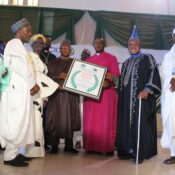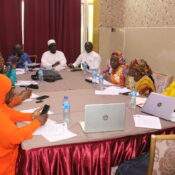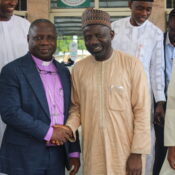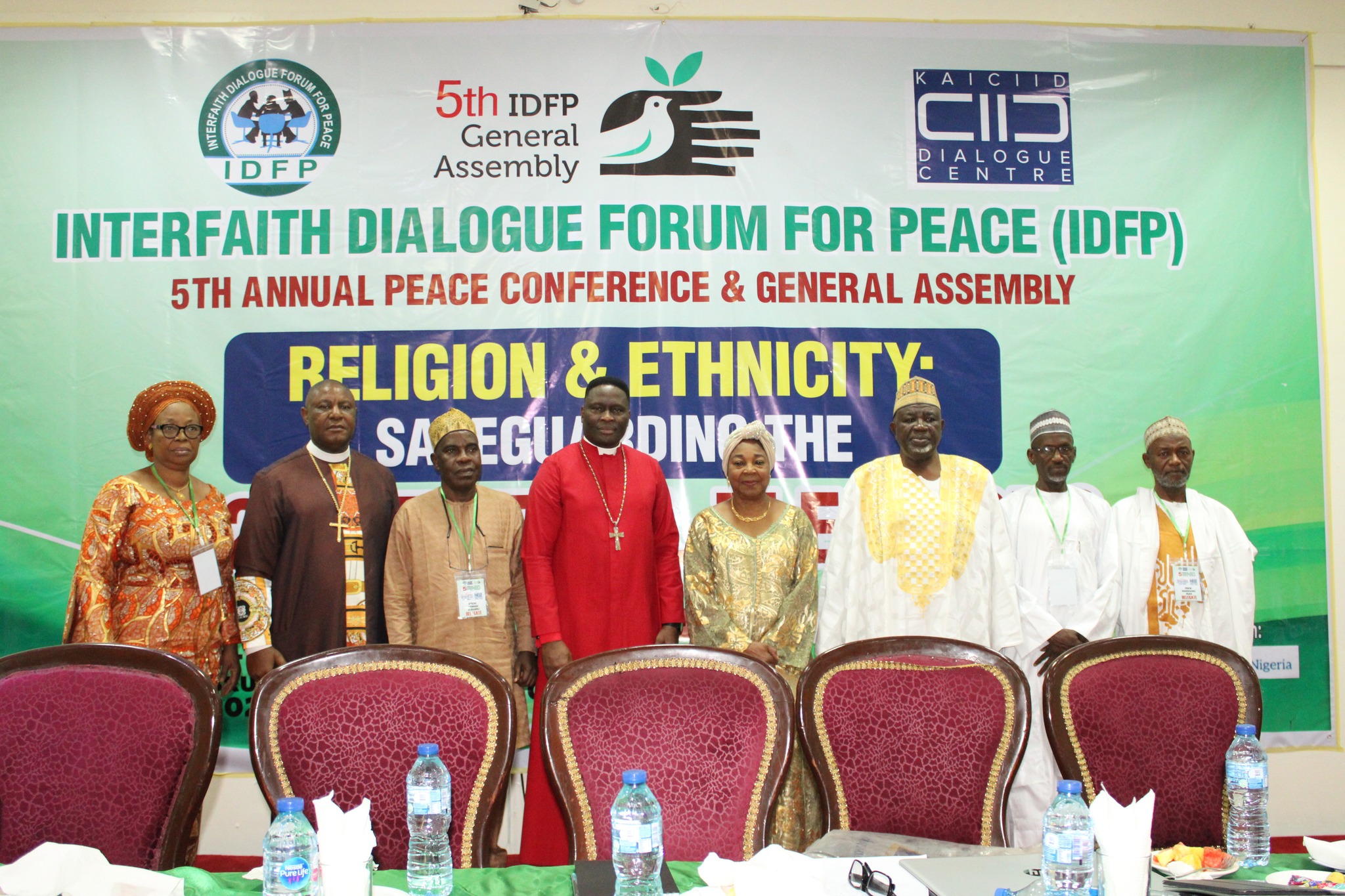
Interfaith Dialogue Forum For Peace Peace Conference
The Interfaith Dialogue Forum for Peace (IDFP) is a faith-based organization made of 120 Christian and Muslim leaders across Nigeria. IDFP was established as a national interfaith and intercultural dialogue through funding and facilitation of the King Abdullah bin Abdulaziz International Centre for Interreligious and Intercultural Dialogue (KAICIID), with view to mobilizing “adherents of all religious faiths in Nigeria towards creating opportunities for building trust, confidence and cooperation through dialogue”
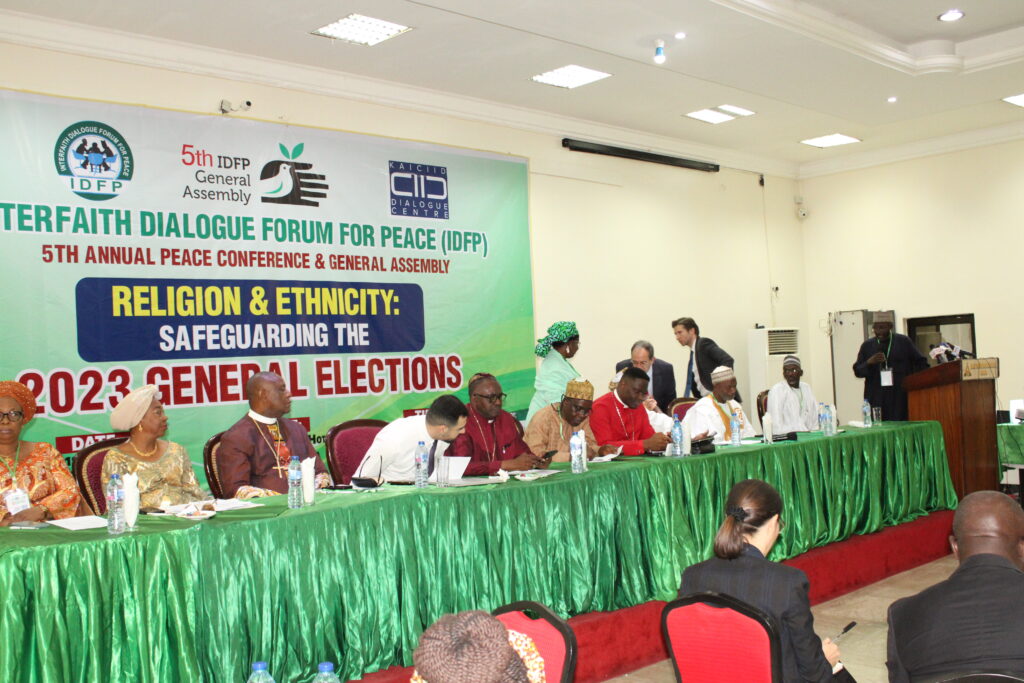
The two-day Peace Conference on the theme “Religion and Ethnicity: Safeguarding the 2023 General Elections in Nigeria” took place in Abuja with representation from the King Abdullah bin Abdulaziz International Centre for Interreligious and Intercultural Dialogue (KAICIID), the Christian Association of Nigeria (CAN), the Nigerian Supreme Council for Islamic Affairs (NSCIA), the Institute for Peace and Conflict Resolution (IPCR), The Kukah Centre and the Interfaith Mediation Centre (IMC), Independent National Electoral Commission (INEC), UN Women, Federation of Muslims Women Association in Nigeria (FOMWAN), Women Wing Christian Association of Nigeria (WOWICAN), ECOWAS Commission, Austrian Embassy, Spanish Embassy, French Embassy, and critical members of the IDFP. The Conference aims to increase collaboration and understanding between policymakers, security, CSOs and religious leaders in promoting non-violent election campaigns towards achieving free, fair, credible and inclusive elections in Nigeria.
Two lead presenters presented the papers; Most Rev. Benebo Fubara-Manuel Ph.D, the former President of the Christian Council of Nigeria and Dr. Saidu Ahmed Dokawa of Bayero University, Kano, respectively.
During the two-day conference, participants deliberated on a number of issues of concern, including the following: how the challenges of managing our religious and ethnic diversities have been allowed to create antagonistic cleavages, promote primordial interests, reduce our sensitivity to ethno-religious realities, waste opportunities in our ethnic diversities, mask political inadequacies and ineptitude, threaten the corporate existence of Nigeria, develop generations of unpatriotic leaders, inadequately prepare ad-hoc staff of INEC in a way that may compromise the electoral process and grow a culture of financial and material inducement of voters and other election stakeholders.
At the end of the robust deliberations, the conference resolved to make the following in recommendations to enhance the credible conduct of 2023 elections and guarantee enduring peace in Nigeria, before, during and after the elections, of adhered to:
Recommendation:
- We should work together to ensure that all voters are empowered with enough information, this will enable make wise choices and know the implications of letting their voices be heard.
- We should all do everything to prevent issues and situations that would polarize instead of leading to a consensus. Even if those things mattered to us in the past, we should de=emphasize them now for the sake of peace.
- In safeguarding the elections, we must ensure that matters are not exaggerated and reactions to ethnic tensions are proportional to the issues at hand so that peace would reign at every point.
- We must stand to safeguard the forth-coming election in the context of ethno-religious sentiments by providing support and protection for those who are likely to be in the greatest need of assistance, particularly people living with disabilities.
- Appreciating how partnership and effective collaborations with local communities could help ensure and safeguard the 2023 general elections, leaders were encouraged to take advantage of this.
- Safeguarding also works through accountability and transparency. This will not only be expected from political leaders but also from all inter-faith actors.
- Nigerians, especially politicians, should embrace love and patriotism for the country. We are encouraged to first see ourselves as Nigerian before being identified with any political party, ethnic and religious group.
- IDFP urges Nigerians to vote for candidates based on character, competence and capacity during elections for a progressive and peaceful Nigeria.
- IDFP urges building strong and resilient ethno-religious structures that emphasizes religious harmony, inclusive leadership and social justice.
- IDFP calls for effective collaboration among all critical stakeholders before, during and after the elections regarding planning, deployments, voter education, monitoring and information sharing to ensure that votes count.
- IDFP calls on INEC to conduct adequate training on the use of the BVAS to their personnel and provide prompt alternatives to faulty BVAS where necessary.
- IDFP calls on religious leaders to preach peace and not divisions and hatred.
- IDFP calls on Nigerians to reject every form of financial and material inducements for their votes and encourages the National Assembly to speedily pass a law for the establishments of “Electoral Offences Commission” to work against impunity in election manipulations.
- The Conference also recommend that the media should play vital role in disseminating necessary information for the enhancement of a peaceful and fair election.
- The Conference prays to Almighty God for help in the forth-coming general elections, and equally work diligently to ensure that the elections hold without any breaches.


